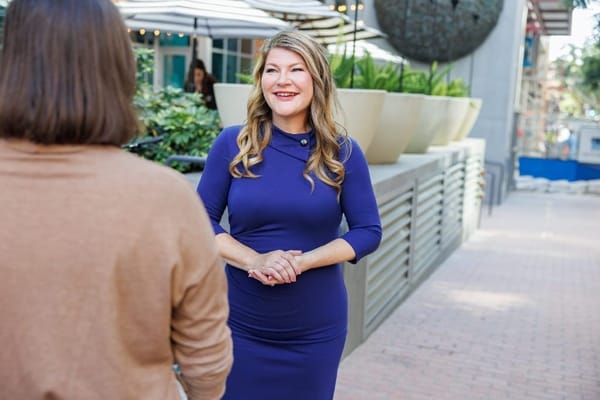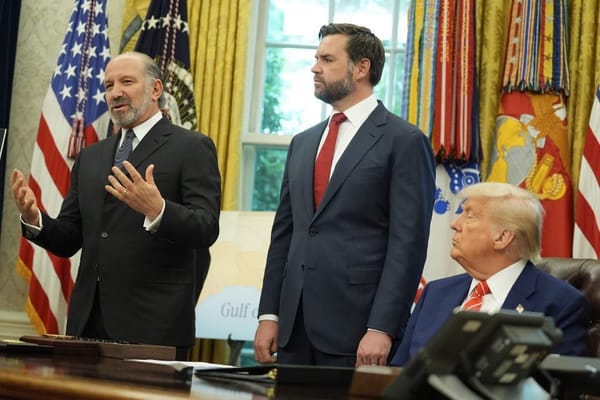Senators Press Trusty on FCC Independence, Diversity, and Universal Service
Democrats warn of growing White House influence over regulators.
Jericho Casper

WASHINGTON, May 1, 2025 – President Trump’s nominee for the Federal Communications Commission, Olivia Trusty, responded this week to pointed questions from Democrats on the Senate Commerce committee.
At the top of their concerns was whether Trusty would resist political pressure following Trump’s February 18 executive order requiring direct presidential oversight of independent agencies’ actions and strategic plans.
“The FCC website states that the FCC is ‘an independent U.S. government agency overseen by Congress,’” wrote Sen. Gary Peters, D-Mich. “We have unfortunately seen this President undermine independent agencies by illegally firing Democratic commissioners at the [Federal Trade Commission].”
Trusty avoided taking a definitive stance on the FCC’s autonomy, citing ongoing litigation in Slaughter v. Trump. “Whether agencies like the FCC are legally independent from the Executive Branch is subject to pending litigation,” she wrote.
Sen. Maria Cantwell, D-Wash., pressed further, asking if a president could fire an FCC commissioner based solely on political affiliation. In response, Trusty said she would defer to the president, the Senate, and the courts “regarding the oversight and management of nominees.”
Some Democrats warned Wednesday they may oppose Trusty’s confirmation if she is not paired with a Democratic nominee, a longstanding Senate tradition for FCC appointments. Trusty offered no comment on her preference for maintaining the agency’s full five-member composition.
Democrats also sought clarity on Trusty’s approach to diversity, equity, and inclusion enforcement at the FCC. “Trump’s FCC Chair has initiated a startling display of agency overreach by sending letters to three regulated companies—Comcast-NBCUniversal, Verizon, and Disney/ABC—informing them of investigations into their DEI practices,” Cantwell wrote.
Asked whether she would support private-sector DEI efforts without FCC interference, Trusty pointed to the FCC’s statutory obligations under the Communications Act.
“In accordance with Section 151 of the Communications Act, the FCC has a responsibility to make sure communications services are available to all Americans without discrimination,” she said.
She also cited the FCC’s responsibility to enforce civil rights protections under Sections 334 and 554, which address equal employment opportunity in broadcasting. “If confirmed, my commitment is to uphold and enforce the law,” she said.
Republicans Focus on Media Ownership and USF Spending
Republicans on the Senate Commerce committee also submitted questions to the FCC nominee. Three of the six who submitted written questions were particularly concerned with modernizing the FCC’s media ownership rules.
In response to questions from Sens. Dan Sullivan, R-Alaska, Shelley Moore Capito, R-W.Va., and John Curtis, R-Utah, Trusty affirmed that she agreed “the FCC has a responsibility to modernize its regulatory framework” to help broadcasters remain competitive in today’s media landscape.
“Modern rules will better position local broadcasters and radio stations to compete for viewers, advertising revenues, and programming,” Trusty said.
Republicans also pressed Trusty on the future of the Universal Service Fund, a multibillion-dollar program that subsidizes rural broadband, school connectivity, rural health access, and low-income communications services.
Senate Commerce Committee Chairman Ted Cruz, R-Texas, warned against expanding who pays into the Universal Service Fund without first tightening spending oversight. The fund is currently the subject of a legal challenge, with petitioners arguing that the way it is funded – through fees collected from telecommunications providers and passed on to consumers – is unconstitutional.
“Spending reform must precede revenue reform,” Cruz wrote in his question to the nominee. “Do you agree that reform to root out waste, fraud, and abuse must be pursued before revenue reform?”
“Yes,” Trusty responded, adding that if confirmed she would work with Congress to identify a “specific, predictable, and sufficient” form of support for the fund.









